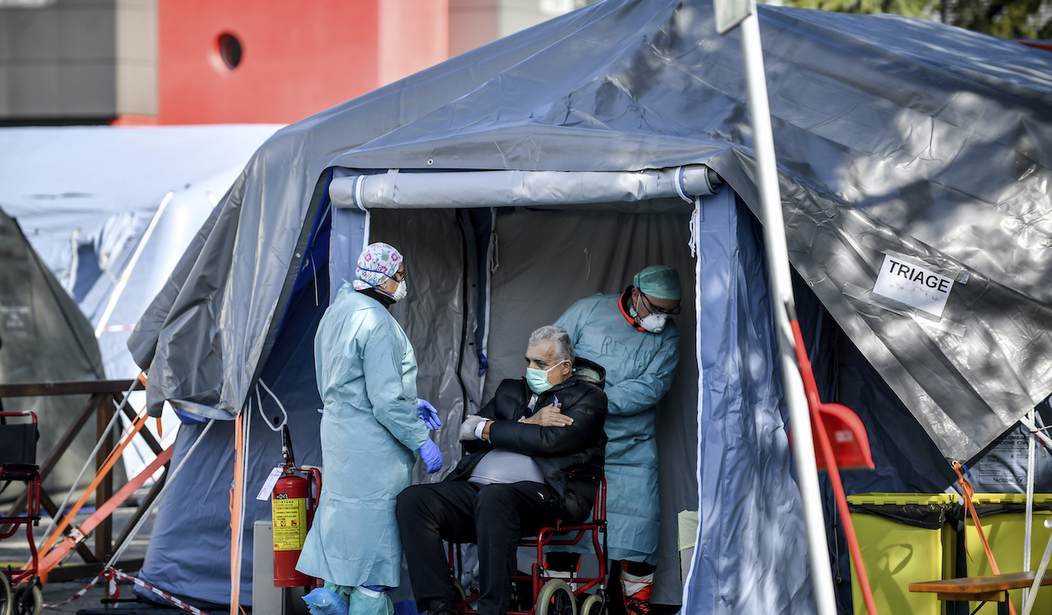Several months into the global pandemic caused by COVID-19, many Americans have been pushed to the edge mentally and emotionally for many reasons. Whether living in fear of the virus which has taken the lives of so many, the economic pressures such as loss of a job, a harsh pay reduction, or simply the isolation caused by social distancing practices, many of our neighbors are suffering as a result of this global ordeal.
A recent piece published by Foreign Policy painted a grim picture of the emotional and psychological toll this is taking on those susceptible to anxiety, depression, or already living with a mental illness. Ranging from stories of those recovering from alcoholism now stuck in self-imposed quarantine, to those who have had to cancel in-person mental-health appointments and therapy, or had mental-health reviews canceled entirely, what this all shows us is the often societally ignored campaign in the war against coronavirus: those suffering because of the pandemic as a result of the circumstances, though not having contracted the deadly and fast spreading coronavirus itself.
According to an interview between WSFA12 News and Alabama Mental Health Commissioner Lynn Beshear, the impact of social isolation and a deficit in mental health resources should not simply be shrugged off by the greater masses. “We may not have lost a loved one,” Beshear explains, “but we certainly feel a loss.”
While for many of us, mocking celebrities who mourn “the normal days” while living in luxury few of us will ever obtain, it would be callous to think that those we consider privileged are any less susceptible to the same emotional rollercoasters we all have to ride now and again.
According to a new story from the Guardian, even former Olympian Michael Phelps has run into a bout of depression as a result of the pandemic.
Recommended
“The pandemic has been a challenge I never expected,” Phelps noted. “All the uncertainty. Being cooped up in a house. And the questions. So many questions. When is it going to end? What will life look like when this is over? Am I doing everything I can to be safe? Is my family safe? It drives me insane. I’m used to traveling, competing, meeting people. This is just craziness. My emotions are all over the place. I’m always on edge. I’m always defensive.”
If that doesn’t sound relatable to you, understand that to many others, it sounds exactly like something they may have said about themselves. Phelps went on to admit something important however, that the cultural narrative “about him admitting to his problems and then living a problem-free life was false.”
Let’s ponder on that thought for a minute.
In recent research conducted by Mental Health America, their data has shown an increase of 22 percent in anxiety screenings between February through March of this year alone. What’s troubling as well is the 39 perent increase in screenings from March through the first several weeks of April alone. Times of crisis like this require innovative and creative solutions, and in this circumstance, several organizations have joined together to create a much-needed resource which aims to provide emotional support to those who are on the frontlines of the fight against this deadly disease.
Creating a way to get Americans at home engaged in the process, Mental Health America and the technology company Sinch partnered to build a brand new service called Text For Humanity. The Text For Humanity switchboard is a way to directly share messages to frontline workers in the thick of it all, as well as individuals struggling through this time of social isolation. This platform isn’t just impacting those in the United States, however. Its reach is global.
As of this publishing, Text For Humanity has sent over 83,000 messages of encouragement across 85 countries thus far. This platform intends to add more features in order to help more of those in need in the coming days. Some of the features that will be rolled out soon include ways to self-identify as either a frontline worker or someone undergoing a time of immense emotional hardship as a result of the pandemic.
Private efforts such as Text For Humanity are a reminder of one thing - the creativity and efficiency of voluntary cooperation at work. When public sector efforts fall way under par, the market provides. When issues arise in a community that require innovative and effective solutions, free people work while government fumbles.
When we look back at this pandemic, what will we choose to remember? How politicians held up relief for the American people so they could get a raise, or how communities came together to keep small businesses afloat? How Americans who would otherwise work for their money prayed their SNAP cards to arrive on time, or how when we were at our loneliest we found new ways to be closer? Times like these will always be remembered for their difficulties, but they can also be remembered for examples of how we rose to the occasion when called, and how true profiles in courage can be used to inspire us when we inevitably come face to face with new obstacles and challenges.
When the politicians failed us, when the bureaucracy didn’t step up to the plate, all we had was each other, and that was more than enough to get us through our darkest days.

























Join the conversation as a VIP Member